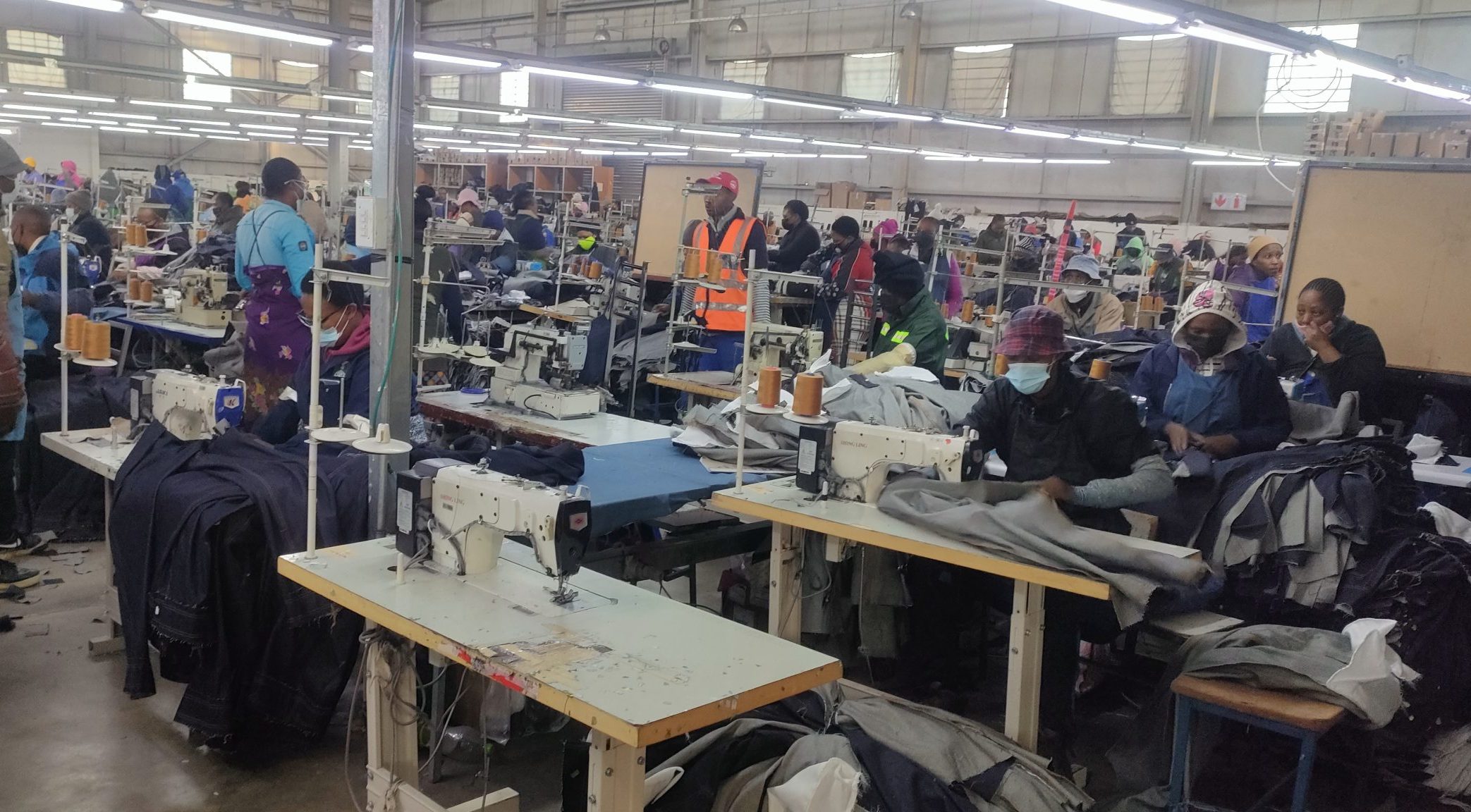At 5 a.m., Maseru stirs to life. Mist and rain blur the slick streets as residents rush through the early chill. Among them are thousands of textile workers—unsure, anxious, and bracing for what could be the unravelling of their livelihoods.
With just two months left before the expiration of a tariff freeze introduced by the Trump administration, Lesotho’s crucial textile industry is teetering on the edge. A looming 50% tariff on textile exports to the United States could undo decades of growth, triggering mass job losses and industrial collapse in one of Southern Africa’s smallest nations.
Lesotho’s textile industry, buoyed by trade agreements like the African Growth and Opportunity Act (AGOA), has benefited from duty-free access to U.S. markets. This arrangement has fuelled investment, created jobs, and made Lesotho a key exporter of clothing to American brands.
Currently, about 75% of textiles produced in Lesotho are destined for the United States, leaving approximately 12,000 workers at immediate risk of unemployment should the tariffs be reinstated.
Mntoetse Shoaepane, General Manager at Afro Expo Textile, voiced her alarm at the potential fallout.
“It’s going to affect all industries including transport, household and all businesses that give direct services to factory workers. These employees have children that they are taking to school where they are paying for services. If tariffs are to go by, investors will leave and factories will shut down,” Shoaepane said.
“It affects all the industries that we have that encompasses the well-being of a person in Lesotho. So if we had to say anything, we would plead with the president of America—that President Donald Trump reconsider this and remove the tariffs,” she added.
Lesotho’s textile sector is a cornerstone of its economy—particularly in employment for women—and is a key contributor to GDP. A sharp disruption, analysts warn, would ripple across the national economy.
Economic analyst Majakatha Mokoena predicted a swift investor pull-out if the tariffs return.
“The only thing that tariffs will do is increase the prices of the products, and if the prices go up and cannot compete with domestic products, that is when the problem begins. Investors will leave and the demand for goods will decline. We will end up in a situation where firms will close,” he said.
Tensions have been worsened by disparaging comments reportedly made by Donald Trump, who once described Lesotho as a country “known by no one.” The remark stings especially hard, considering that many garments made in Lesotho—including branded golf t-shirts allegedly worn by Trump himself—are exported to the U.S.

“That he doesn’t know about Lesotho is funny because one of his signature golf t-shirts is actually made in Lesotho,” a critic pointed out.
For workers like Mponyane Kekane, a factory employee in Maseru, the uncertainty is deeply personal.
“I am not happy about all this because if anything is to go by, that means I will lose my job. As of now the salary that I earn is too little—I can’t afford to take care of my fifteen-year-old son. How about if I lose my job because of these tariffs?” Kekane said.

The AGOA framework—established in 2000—has been vital to keeping Lesotho’s industry competitive, helping offset higher labour and logistical costs that might have driven production elsewhere, such as Bangladesh, Vietnam, or Cambodia. Though AGOA is formally due for renewal in September 2025, Trump’s tariff stance could cripple its utility before that.
As the clock winds down, Lesotho’s hopes rest on diplomatic pressure and urgent negotiations. The survival of its textile industry—and with it, the economic security of thousands,now depends on the choices made far beyond its borders.


 Trending
Trending 
